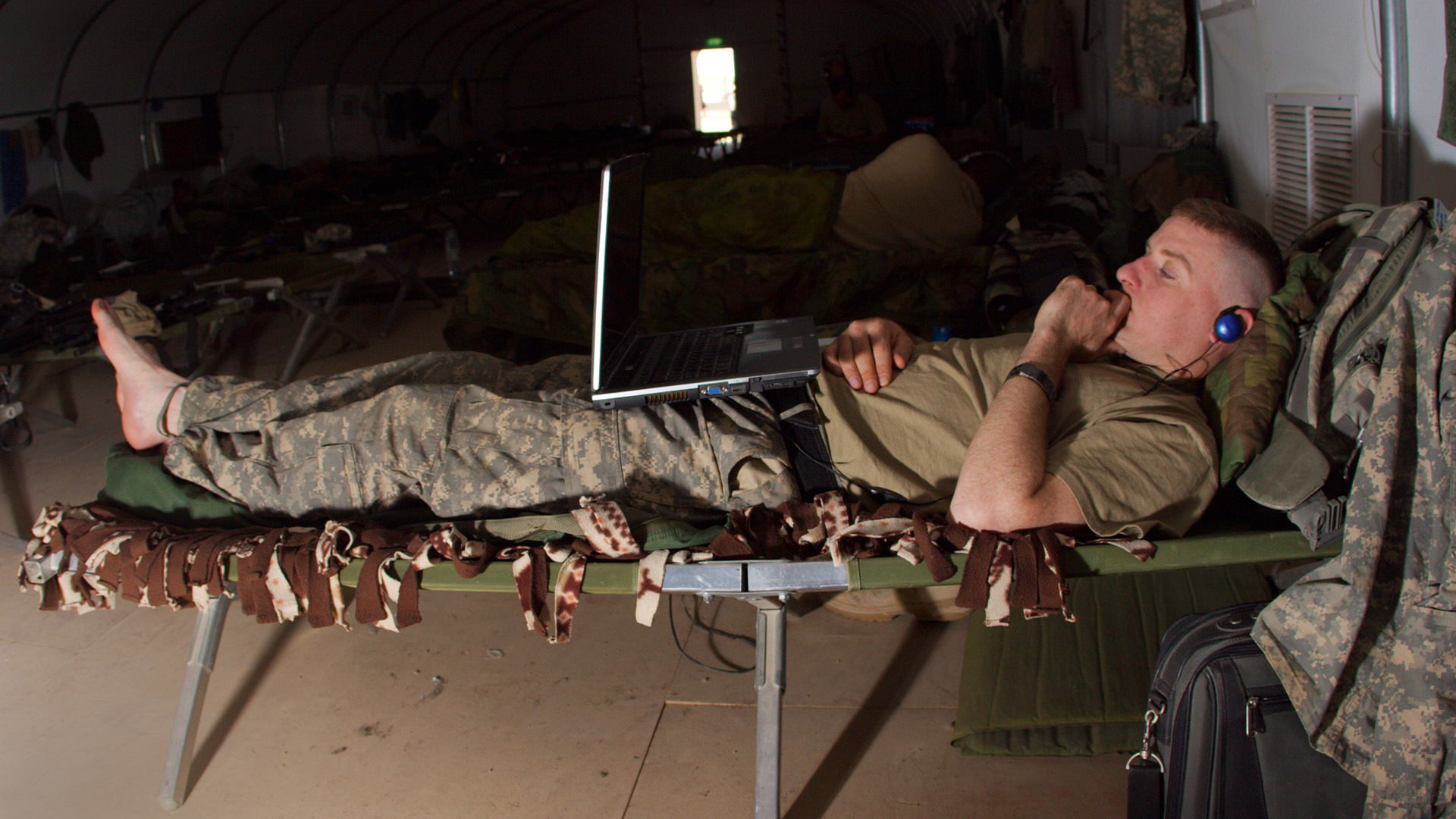
[LAUREN TAYLOR]
WHEN IT COMES TO NATIONAL DEFENSE YOU WANT PEOPLE AT THE TOP OF THEIR GAME.
BEING AT THE TOP OF YOUR GAME ALSO MEANS GETTING ENOUGH SLEEP.
SO, WHAT IF WE WERE TO TELL YOU MOST U-S TROOPS AREN’T GETTING ENOUGH Z’S?
BECAUSE THEY’RE NOT, ACCORDING TO A NEW GOVERNMENT ACCOUNTABILITY OFFICE STUDY.
DATA REVEALS MOST SERVICE MEMBERS GET SIX OR FEWER HOURS OF SHUT-EYE A NIGHT.
THAT’S LESS THAN THE SEVEN HOUR MINIMUM RECOMMEND BY THE DEFENSE DEPARTMENT.
IT’S FLAT OUT DANGEROUS TOO.
THE SURVEY FOUND FATIGUE LED TO DEADLY ACCIDENTS AND HUNDREDS OF MILLIONS OF DOLLARS IN DAMAGES IN SHIPS, VEHICLES AND AIRCRAFT.
RESPONDENTS DESCRIBED HOW SLEEP ISSUES IMPACT THEIR WORK…
FROM NEARLY COLLIDING WITH ANOTHER AIRCRAFT TO DOZING OFF AT THE JOB.
AND NOT TO MENTION THE MENTAL TOLL.
ONE ANONYMOUS SERVICE MEMBER SURVEYED TOLD INTERVIEWERS
I COULD KILL SOMEONE… BECAUSE I’M NOT GETTING THE RIGHT SLEEP.
THE RIGHT SLEEP IS IMPORTANT TOO.
ROUGHLY HALF OF RESPONDENTS REPORTED POOR SLEEP, EVEN IF THEY DID ACHIEVE THE RECOMMENDED HOURS.
SO, WHAT SHOULD BE DONE?
WELL, THE DEPARTMENT OF DEFENSE SAYS THEY’RE TAKING STEPS TO ADDRESS “FATIGUE-RELATED ISSUES,” LIKE CREATING GUIDANCE ON FATIGUE MANAGEMENT.
STILL, RESEARCHERS SAY THE DOD NEEDS BETTER OVERSIGHT AND COLLABORATION WHEN IT COMES TO TACKLING FATIGUE WITHIN THEIR RANKS.
THE STUDY RECOMMENDS FATIGUE-RELATED OVERSIGHT STRUCTURE, AND A LIST OF ALL RELATED RESEARCH PROJECTS TO HELP THE DEPARTMENT LEARN ABOUT THE IMPACT OF FATIGUE ON SERVICE MEMBERS, AND OPERATIONS.
THE GAO SAYS IMPLEMENTING POLICIES THAT REDUCE FATIGUE COULD SAVE LIVES AND MONEY.
THE GOVERNMENT WATCHDOG LOOKED INTO HEALTH DATA FROM 2005-TO-2018.
THEY INTERVIEWED PILOTS, AVIATION MAINTENANCE WORKERS, AND MISSILEERS.







